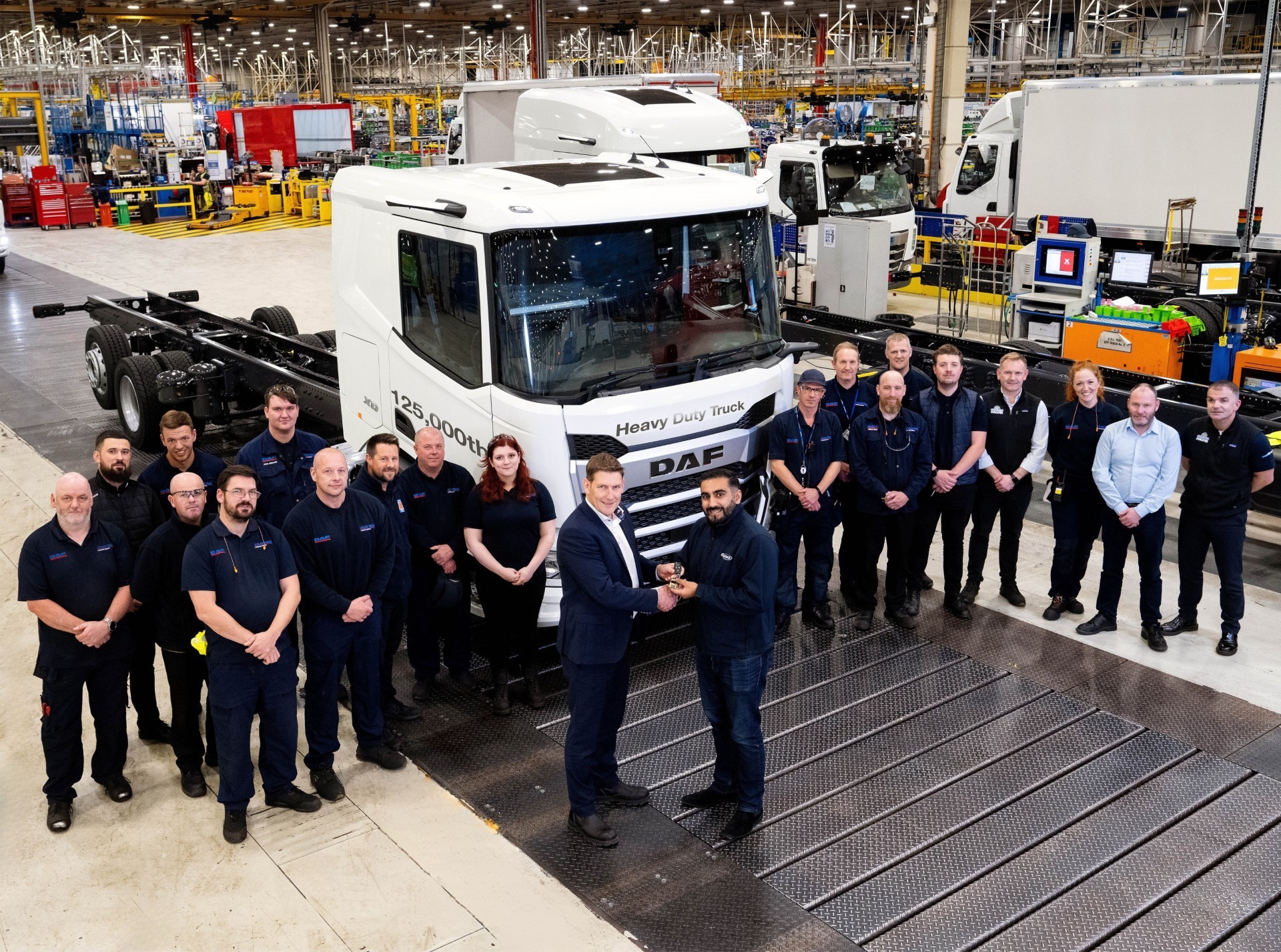Lancashire’s iconic truck maker is in overdrive. Its Leyland plant is running production at record rates as the operation continues to find more ways to increase output.
That work is being driven by an order backlog at Leyland Trucks that managing director Peter Ahrens describes as “very strong”. He adds: “We are working with our supply chain to deliver on those orders to serve as many customers as possible.”
The manufacturer is not alone in grappling with an order backlog, it remains an industry-wide challenge as companies emerge from the pandemic and the massive global impact it has had on supply chains and component availability.
Putting it simply, Peter says: “We have to produce as many vehicles as we can and as quicky as possible.”
That mantra has been adopted across the sector. Industry figures for October last year, the latest available, revealed overall commercial vehicle making in the UK was up 45.5 per cent year-to-date, with 85,547 built in Britain since January.
Peter took over the managing director role last year. He joined Leyland’s US parent company PACCAR in 2011 as a design engineer at Kenworth Truck Company in his home city of Seattle and has worked in roles spanning engineering, operations, sales and marketing.
Leyland Trucks is one of the UK’s leading truck manufacturers and assembles the full range of DAF commercial vehicles. It is one of the undoubted jewels in Lancashire’s automotive crown.
The business can trace its roots to as far back as 1896 when The Lancashire Steam Motor Company was first established in Leyland. Since then the South Ribble town and its name have been synonymous with motor manufacturing.
It has been part of PACCAR, a Fortune 500 company, since 1998 and today its 86-acre site, with its cutting-edge manufacturing facilities, employs 1,000 people and is one of the global group’s largest plants. As well as serving the home market it ships its products around the globe, as far afield as Taiwan.
It remains a major source of employment inthe area, providing work for generations of families and last year it welcomed its largest and most diverse cohort of apprentices in recent times.

As a recent arrival in Lancashire Peter, who was a guest speaker at Lancashire Business View’s Lancashire Business Day, says he has been impressed by the culture he has found at Leyland Trucks, describing it as “very positive”.
He believes the future opportunities for Leyland Trucks are huge and says: “We are driven to continuously improve quality, safety, and efficiency to further strengthen our position as market leaders in the UK.”
Peter adds: “That future will include even more zero emission vehicles.” Leyland is already manufacturing the fully electric DAF LF truck for urban and regional ‘zero emission’ tasks. Originally launched as a 19-ton model, it recently added a 16-ton version.
Last May, 20 of the trucks entered service as part of a Department for Transport funded Battery Electric Truck Trial (BETT). The vehicles are being use by a range of public bodies including the NHS and local authorities.
As well as day-to-day operations they are gathering real-time data with the results used in an interactive website to inform future fleet operator buying decisions and help stimulate the sale of battery electric trucks.
With the government having set targets to end the sale of non-zero emission heavy goods vehicles from 2035 - for vehicles of 26-tonne GVW and below, and 2040 for heavier vehicles - the trial aims to make a significant and positive impact upon the move to zero emission vehicles.
Peter says: “We are going to continue to make progress on electric vehicles.” He also believes the UK is in a good place to benefit from the coming battery revolution.
He says: “The UK supply chain is positioned well due to incoming battery Rules of Origin requirements. Starting in 2027, with a phase in from 2021 through 2026, UK vehicle manufacturers will be able to export EVs into the EU with zero tariffs if their battery cells have 65 per cent EU/UK content.
“Making sure the product complies with these requirements will give a massive advantage to local manufacturers.”
Self-driving vehicles are also coming down the road as part of the predicted logistics revolution. Peter says: “PACCAR is working on self-driving vehicles. In fact, we even have some of them on the road.”
In late 2021, PACCAR, FedEx, and Aurora, one of the group’s technology partners, teamed up to launch a commercial pilot operating between Dallas and Houston, with a backup driver for safety.
In Europe, DAF is also gaining experience with autonomous driving trucks, taking a lead role in the ‘EcoTwin’ project. Its aim is to show that it is possible to allow trucks equipped with wireless systems to drive in close formation thanks to highly advanced Wifi, radar and camera technologies.
By using the information provided by the lead truck, the platooning trucks behind are able to accelerate, brake and even steer automatically. Peter says: “As the technology matures, I’m sure we will see more of it in the Leyland facility.”
Enjoyed this? Read more from Ged Henderson






















